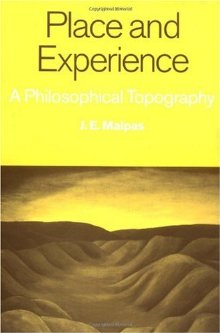Power Quote
Geography Thursday: people as ‘functions of landscape’
In Jeff Malpas’s excellent book, Place & Experience: A Philosophical Topography, he writes:
In Proust’s work, persons and places intermingle with one another in such a way that places take on the individuality of persons, while persons are themselves individuated and characterized by their relation to place; persons come to be seen, to use a phrase from Lawrence Durrell, almost ‘as functions of a landscape’ – in some cases, even of a particular room or setting. In fact, the narrator of Proust’s novel, Marcel, grasps his own life, and the time in which it is lived, only through his recovery of the places in relation to which that life has been constituted. Remembrance of Things Past is thus an invocation and exploration of a multitude of places and, through those places, of the persons who appear with them.
What do you think about this? Should our characters be ‘functions of landscape’? How does thinking about characters – especially in Proust – in this way alter our experience of a text? Are we – real, live human beings, as opposed to our fictional characters – functions of our landscape?
Commence arguments.
Tags: Geography Thursday, Jeff Malpas, proust


I am mostly into this, but probably because I prefer landscape over character in fiction, etc.
I think being a function of landscape–scene, setting, place, environment—is a quality peculiar to the remembered, and therefore should not be generalized into the narrative art, as a whole. In Proust it is especially apt, but in, say, Dickens, it is more often you find settings which are characterized and individuated by people.
Do you know the story “Landscape and Dream” by Nancy Krusoe? It first appeared in the Georgia Review and was also included in the Best American anthology from 1994. It’s one of the most powerful pieces of fiction I’ve ever read. There is power in place for sure: in barns, in kitchens, in rivers, etc.
It is possible for an essayist to concern themselves entirely with place as their main subject. Characters (and the omniscient narrator) are just, in fact, extensions of the landscape.
this may or may not be related. but, i live in philadelphia. a friend of mine recently visited LA. he said it was very warm and mild, and from what i gather LA has extremely mild winters, or no real winters at all, which made me think people in LA are soft. because, in my mind, living in an area with very cold winters makes people hard. what it means to be ‘hard’ or ‘soft’ can be up to you.
want to read…..whyyyyyy is this book so espensive!!?
As much as we humans inhabit — or are functions of — our landscapes, we also create those very same landscapes.
IRL, I think “functions of a landscape” is taking it a little far. Place is important in “grasp[ing one’s] own life” because it’s a reliable method of re-imagining one’s orientation to the remembered moment, not because it’s the only way to orient yourself IN the given moment.
In our subjective recollections, I think we render “secondary life characters” to this position (i.e. “dude from the coffee shop”), but that’s about as far as it goes. Maybe.
xrl.us/bh8nzm
I wonder what Malpas has to say about health care.